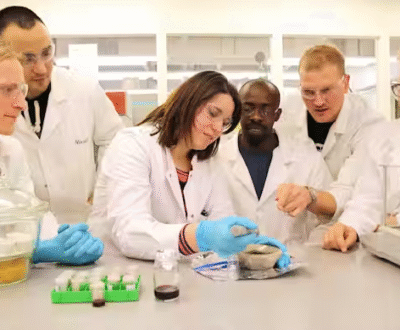Electronic Voting Machines (EVMs) HOW WORKS India National Elections 2024
- April 19, 2024
- TECHNOLOGY
No Comments
Electronic Voting Machines (EVMs) are used in some countries to record votes in elections.expand_more Here\'s a breakdown of how they work technologically: Electronic Voting Machines
Components:
- Control Unit: This unit is kept with the presiding officer and manages the voting process.expand_more It has a button to activate the balloting unit and a screen to display the total votes cast.expand_more
- ** Balloting Unit:** This unit is located in the voting booth where voters cast their ballots.expand_more It displays candidate names/symbols with buttons next to them.expand_more
Process:
- Voter Verification: The polling officer verifies the voter\'s identity.expand_more
- Activating the Ballot: The officer activates the balloting unit, allowing the voter to cast their vote.expand_more
- Casting the Vote: The voter presses the button for their chosen candidate.expand_more
- Confirmation Beep: The control unit beeps to confirm the vote.expand_more
Security Features:
- Stand-alone System: EVMs are not connected to any network, wired or wireless, reducing hacking risks.expand_more
- Write-once, Read-many Memory (WORM): They use WORM memory, ensuring data can only be added, not tampered with.
- Tamper Seals: EVMs have tamper seals that alert officials if the machine is compromised.expand_more
Additional Notes:
- Battery Operated: EVMs function on batteries, eliminating dependence on external power sources.expand_more
- VVPAT: In some places, a VVPAT (Voter Verifiable Paper Audit Trail) machine is used alongside EVMs.expand_more It generates a paper slip showing the candidate selected, briefly visible to the voter for verification.expand_more
It\'s important to note that EVMs have been subject to debate regarding their vulnerability to tampering.expand_more While security measures are in place, the technology is constantly evolving. exclamation
About us and this blog
We are a digital marketing company with a focus on helping our customers achieve great results across several key areas.
Request a free quote
We offer professional SEO services that help websites increase their organic search score drastically in order to compete for the highest rankings even when it comes to highly competitive keywords.
Subscribe to our newsletter!
There is no form with title: "SEOWP: MailChimp Subscribe Form – Vertical". Select a new form title if you rename it.
More from our blog
See all posts
1. Introduction to B Tech Computer Science Welcome to the dynamic world…
Scientists discover how to use your body to process data in wearable…
AI Courses in India 2025 (Full-time/On-Campus) Top AI Courses in India 2025…
Apple iOS 18.2 Features: A Complete Breakdown of Apple’s Most Exciting Update…
Molecular Computing: Ushering in the Next Generation of Artificial Intelligence. Molecular Computing:…
Quantum computing boom: Innovations, investments, cyber security risks Quantum Computing Boom: Innovations,…
Opinion | Intel\'s Downfall Is A Lesson In Why Not To Miss…
Opinion | Intel\'s Downfall Is A Lesson In Why Not To Miss…
No Comments
Recent Posts
- Hello Rdmtech January 10, 2026
- Scientists discover how to use your body May 9, 2025
- Top 50 Institutes offering AI Courses in India 2025 December 28, 2024
All Website Tags
#LAVA_Blaze_2_5G
AI
apple
Apple's Hiring
Apple's Watch
Apple's Watch for kids service now available in India
Apple AI To Star At iPhone 16 Series
Apple Event
Apple’s
Artificial intelligence company
Consumer Technology
Downfall Is A Lesson In.
Ethics of Artificial Intelligence
Gemini verbally
Google's AI chatbot
Google Pixel 9
How much will Apple iPhone 16
INDIA
Indian IT Sector Achieves Remarkable Growth in FY'22
Innovations in Computer Science
Intel
Intel’s Core Ultra 200V series processors...
iphone
iPhone 13
iPhone 15 Pro
iPhone 16 launch date revealed via new leaked poster. Expected date
iPhone 16 Pro
iQOO Z9s
iQOO Z9s Pro's
Is an electronic voting machine system
new
Next Generation
Opinion | Intel's
Python Fundamentals: A Beginner's Guide to Python Programming #1
Surpassing $227 Billion: NASSCOM Report
tech
Technology
Tecno
Top 50 Institutes offering
Top Tech News
Top Tech News Today
Ultra India
Ushering
Vivo T3
Vivo T3 Ultra India Launch Date








